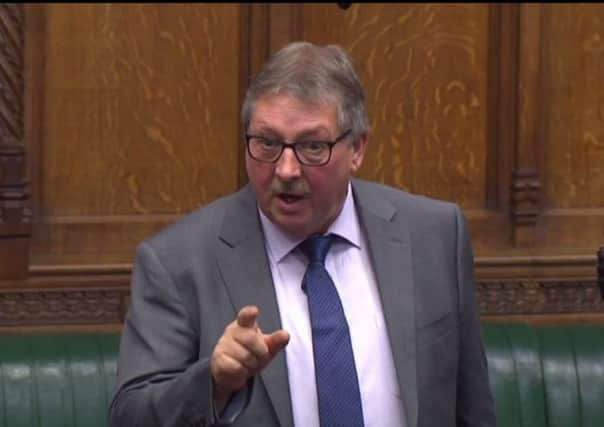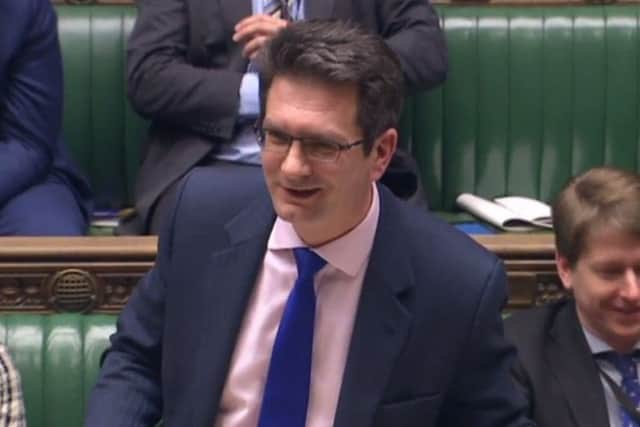DUP MP and Brexit minister unite to trash idea of economic forecasts


They were addressing Parliament on the matter of a leaked analysis paper, which painted a dismal forecast for the UK’s prospects outside the EU in the years to come.
The analysis paper sets out three possible scenarios for how Brexit will play out, and indicates that the UK would be worse off in every single one.
Among the areas said to be hardest-hit is Northern Ireland.


Advertisement
Hide AdAdvertisement
Hide AdThe government described the paper, which formed the basis of a story published late on Monday on the website BuzzFeed – as being a mere “preliminary analysis”.
Addressing the issue in the Commons today, Steve Baker (who is Parliamentary under-secretary at the Department for Exiting the European Union – effectively making him deputy to David Davis, the MP in charge of the whole Brexit process) said the BuzzFeed story represented “an attempt to undermine our exit from the EU”.
There were calls from MPs for the raw analysis report itself to be published.
Mr Baker said the government cannot publish analysis “before it has been completed”, or whilst negotiations are continuing – adding that to do so would “harm the national interest”.


Advertisement
Hide AdAdvertisement
Hide AdAmong those to speak on the issue was East Antrim DUP MP Mr Wilson, a long-time critic of the EU.
“We’ve been here before of course,” Mr Wilson said.
“Because the same gloom-laden forecasts were made before the referendum and none of them were anywhere near the mark.
“Would he agree with me that these long-term forecasts are as useful in predicting future economic performance as newspaper horoscopes?
“But more importantly, will he give us an assurance that despite the hysteria from these benches [indicating the Labour-dominated side of the House], the government will not be distracted from honouring its commitment to delivering the UK out of the single market and out of the customs union?”
Advertisement
Hide AdAdvertisement
Hide AdMr Baker replied: “He reminds me of the great economist (John Kenneth) Galbraith, who I think said if I recall correctly that ‘the only purpose of economic forecasting was to make astrology look respectable’.
“And I think there’s a great deal of truth in that.”
Labour Brexiteer Kate Hoey asked whether “the person who leaked this within the Whitehall establishment would be better off moving and working in Brussels”.
Meanwhile, pro-united Ireland parties in the Province issued statements voicing dismay at the leaked analysis.
Sinn Fein MEP Martina Anderson said it shows the government is “aware of the huge damage Brexit will do and are ploughing on regardless”, whilst SDLP MLA Claire Hanna said it shows “all Brexit paths lead to disaster” and called on the government to halt the “nativist folly” of quitting the single market and customs union.
WHAT DID BUZZFEED REPORT?
Advertisement
Hide AdAdvertisement
Hide AdAccording to the story on BuzzFeed, the leaked economic analysis paper is titled “EU Exit Analysis – Cross Whitehall Briefing”, is dated January 2018, and was “prepared by officials across Whitehall for the Department for Exiting the European Union”.
It forecasts that under a “comprehensive free trade agreement with the EU, UK growth would be 5% lower over the next 15 years compared to current forecasts”.
If there is “no deal” struck with the EU before quitting, this “would reduce growth by 8% over that period”. A third option, of maintaining single market access through membership of the European Economic Area “would, in the longer term, still lower growth by 2%”.
BuzzFeed also reported that “the North East, the West Midlands, and Northern Ireland” would face “the biggest falls in economic performance”.